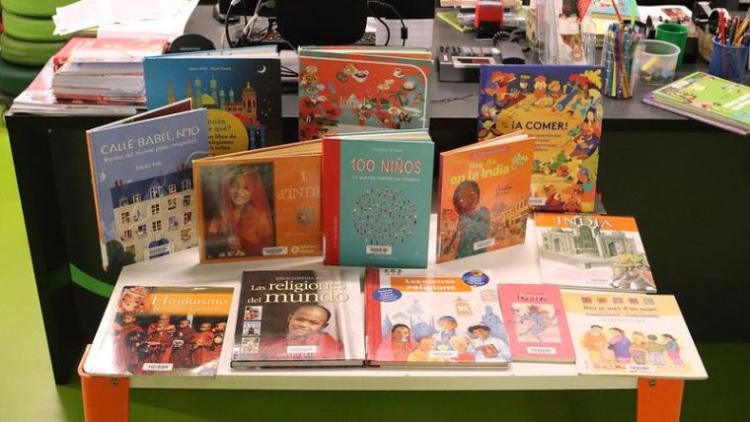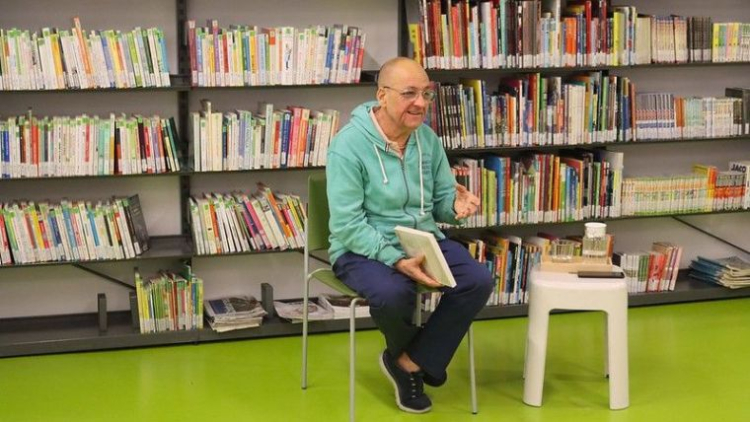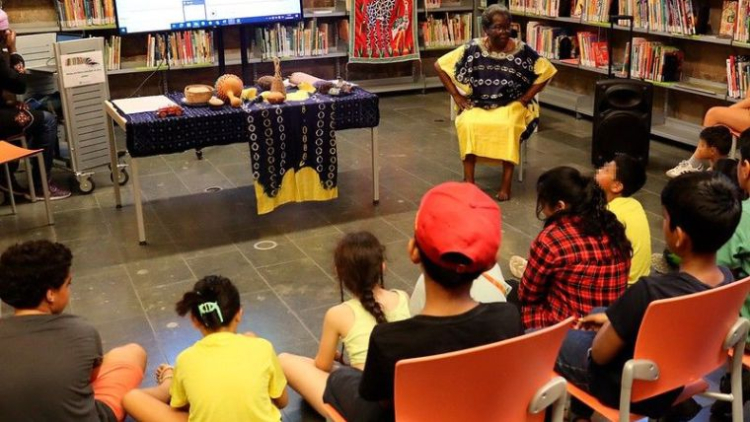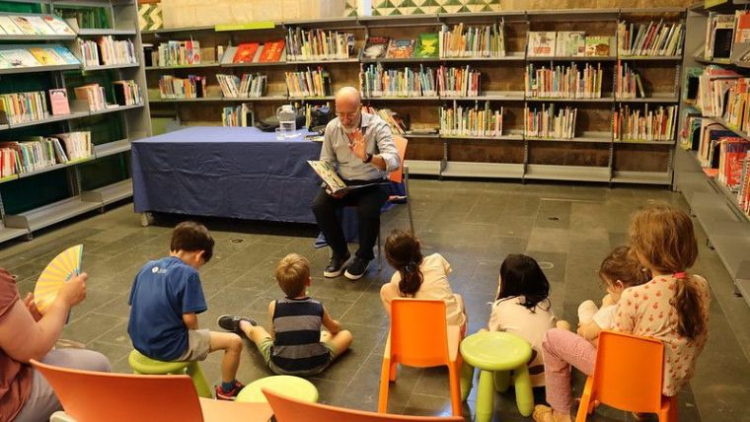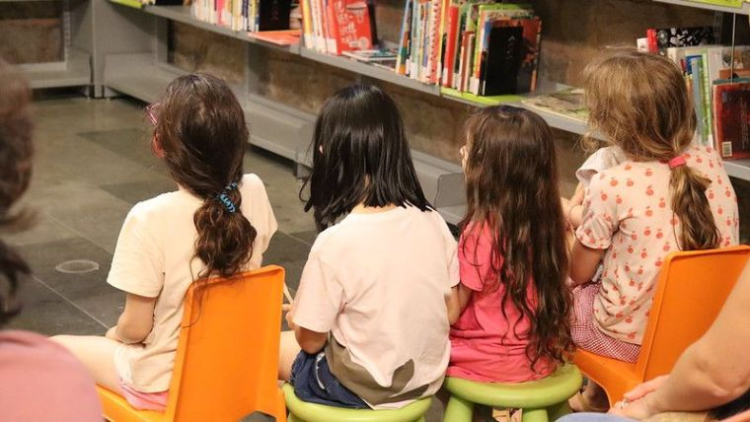Chronicle of the cycle “A World of Beliefs: Learning about Religious Traditions through Stories”
Hinduism, traditional African religions and Sufism, through tales and fables
The “A World of Beliefs: Learning about Religious Traditions through Stories” series of storytelling events took place on 27 June, and 3, 4 and 11 July, organised by Office for Religious Affairs (OAR) in collaboration with Barcelona Libraries, with the aim of making the multiplicity of spiritualities and religions in the city more accessible for children. It consisted of four storytelling sessions with the authors of the books “Abenyonhú”, “El libro de Gundicha y la cocina del bhakti” and “Històries de Nasrudín”.
Popular narrative captures the culture and history of a people through the immediacy and simplicity of stories and tales. Literature and legends make the reality of a community, as well as its spirituality and religiosity, easily accessible to everyone. With the aim of bringing this approach to children, on 27 June and 3, 4 and 11 July, in collaboration with Barcelona Libraries, the Office of Religious Affairs (OAR) held a series of storytelling events in which some of the concepts and experiences of communities living together in Barcelona were addressed.
A total of four storytelling sessions were held, under the title “A World of Beliefs: Learning about Religious Traditions through Stories”. In these sessions, the author of the book, story or tale read aloud excerpts from their work, inviting the children and their families to reflect on cultural and religious plurality, empathy and respect for diversity.
The programme kicked off on 27 June with a reading from “El libro de Gundicha y la cocina del bhakti” [The Book of Gundicha and the Bhakti Kitchen] (2019) by its author, Gundicha Das. The book tells the story of Krishna, and explains the teachings of the Bhagavad Gita, the most fundamental of Hindu philosophical texts, through the reading of various Indian recipes that also refer to other topics, such as respect for nature, life and death, and one’s own judgement. One of the stories read by Gundicha Das, involving a king and his advisor, encouraged the audience to reflect on how nothing in life happens by chance; there is a reason for everything. In the story, the king loses one of his fingers, and this misfortune is the very thing that saves him when he is kidnapped to be offered to a goddess as a sacrifice – the fact that he is missing a finger means that he is incomplete, and therefore as a sacrifice would also be incomplete.
On 3 July, the programme continued with a journey to West Africa through “Abenyonhú” (2004) by Agnès Agboton, who shared some of the key features of African spirituality and religiosity with the audience, through stories from the Yoruba tradition in Benin. Many of these tales tell the story of the origin of creation, and here Agboton chose the story “Abenyonhú”, one of the author’s own creations, which gives the book its title. The story is about the impossible love between a woman warrior from the Dahomey empire and Dangbé, a python god with a skin in all the colours of the rainbow, which explains the origin of the Baobab tree. The session was repeated on the last day of the programme, 11 July.
Before that, in the third session of the series on 4 July,Halil Bárcena read aloud his “Històries de Nasrudín”[Tales of Nasruddin] (2015), which reflects the diversity of Islam by focusing on the Sufi storytelling tradition. The book brings together tales featuring Nasruddin, a wise madman from the legends of Sufi folklore, who is the hero of numerous stories full of humour and wisdom. Bárcena singled out one in particular, where the wise man is travelling with his son and a donkey under a constant hail of criticism, because one or the other is riding the donkey, because both of them are riding the donkey, or because neither of them are. The tale underlines the fact that we cannot avoid criticism or change other people’s opinions, but we can change how they affect us.
The storytelling programme is the result of the long-standing collaboration between the OAR and Barcelona Libraries, which began in 2006 with the “7 Religions, 7 World Perspectives” programme, aiming to offer the public a diversity of activities to raise awareness of the religious pluralism that characterises the city of Barcelona.


